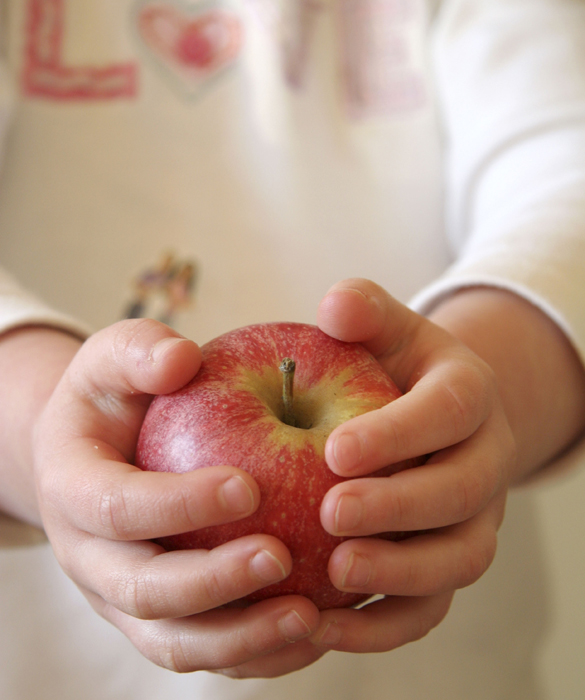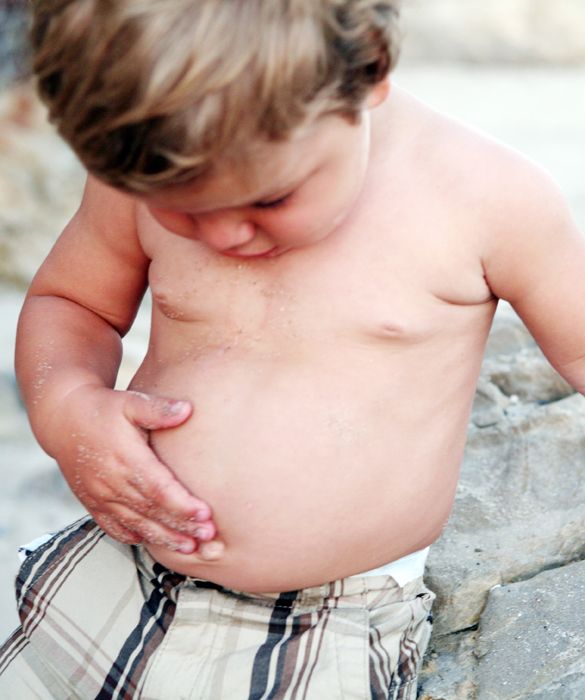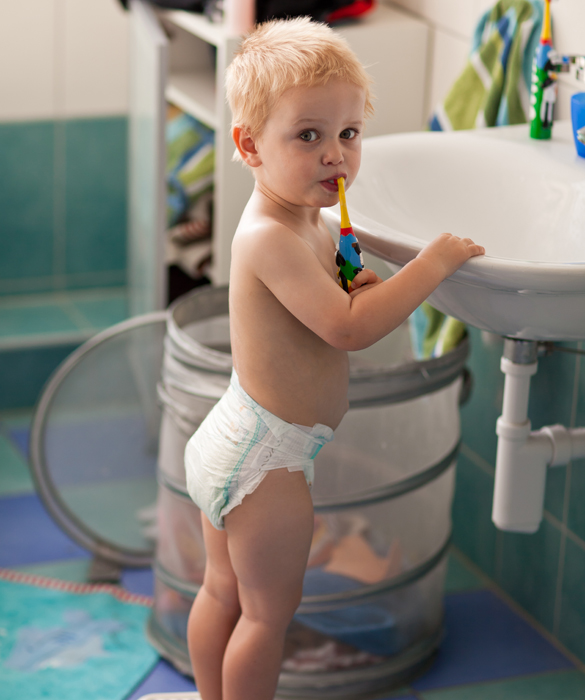Track to Success

Kids start their lives with wonderfully blank slates. They don’t have years of experience dodging chocolate cravings and morning lethargy that keeps them from daily exercise. “Routines are absolutely essential,” says pediatrician Dr. Wendy Sue Swanson. “What we do now can help our children turn habits into practices that they will do without thinking. These habits will last a lifetime.” Here are the habits your little one should work on—with you leading the charge, mom.
Eating Breakfast

Experts harp on this for a reason: Breakfast is the most important meal, giving your children fuel for the day. Get your kids up early enough to have time to nosh before school. “Healthy kids eat breakfast regularly and consume more calcium in the form of milk,” says physician nutrition specialist Dr. Melina Jampolis. Choose oatmeal with a glass of milk or whole-grain cereal for a perfect start each morning.
Keeping a Sound Diet

Healthy kids reach for the right things when they eat, which means less refined sugar and more fresh, colorful foods. “Just like adults, kids should be eating more fruits and vegetables and low-fat dairy,” says Jampolis. “They should have less fast food; less high-fat, dry, salty snacks; less packaged baked-goods and less foods with added sugar.”
Listening to That Tummy

While eating, teach your kids to listen to their hunger pains. If they can learn to be in tune with their tummies, they won’t be tempted to overeat and overindulge. “A child's job is to eat when hungry, and stop when they are full,” says Swanson. “Parents decide what food is offered. If good choices are provided, and children eat with family and parents who model great eating, the rest will follow.”
Brushing Teeth

Most hygiene habits won’t necessarily cause health problems if they’re not followed, according to Swanson. But oral upkeep is absolutely essential. “Children need to brush with fluoride-containing toothpaste starting at 12 months of age,” Swanson says. “They need to brush twice, and get help until they are in about 2nd grade.” Make sure they’re scrubbing their teeth well until 7 or 8 years old, and they’ll follow the routine for life.
Getting Check-Ups

Children need to see the doctor regularly to make sure they’re developing healthy bodies and to get the appropriate immunizations. “Go yearly for kids in child care, as well school-age children,” says Swanson. “The recommendations for immunizations are updated yearly, so check in. Rules for ‘booster’ shots change sometimes, so many families will believe a child is up to date when, in reality, they are not. Further, we now recommend flu shots for every child over 6 months of age, annually. So, come October, each child should be updated.” Schedule a checkup at the beginning of school every year, and they’ll be good to go.
Limiting Screen Time

With everything from TVs to iPads, kids have access to screens nearly 24/7 these days. Healthy kids just don’t sit in front of them constantly. “Provide them with great interaction and undistracted attention from the very beginning of their life,” says Swanson. “Limit the time they spend in front of screens to less than two hours a day.”
Staying Active

Ditch the tech toys, and get going. Healthy kids avoid screens by staying active with extracurriculars, especially sports. “They’ll have higher levels of vigorous physical activity,” says Jampolis. “Healthy kids are generally more active, and will probably play on sports teams in and out of school, so there is more scheduled, fun physical activity built into their day.” Sign them up for T-ball or soccer. Keep them as active as you can.
RELATED: 10 Guiltless Gluten-Free Snacks
Embracing Nature

Encourage kids to embrace the outdoors by “showing respect for silence and downtime,” says Swanson. “Find time to exercise and enjoy being in nature every single day. I often tell parents that a goal for our children must be to find time to be without a ceiling every day!” Take a hike in the park with your kids, or just explore the falling leaves in the backyard.
Getting Lots of Sleep

Sleep, sleep, sleep. Your growing children need more than you. They need lots of it. Set up a bedtime, and have your little ones stick to it. “In general, school-aged children need around 10 hours of sleep, teens need eight-and-a-half or nine-and-a-half hours—which can be difficult.” Encourage shut-eye young, so as they grow they’ll understand how much better they feel on a full tank of sleep every day.
Gettin’ Happy

Make sure your children take care of emotional needs early in life. They must participate in activities that keep them upbeat, which are the best medicine for handling life’s curveballs. “They are happy,” Jampolis says of the healthiest kids. “I think depression is under-diagnosed in kids. Not that they need to be medicated, of course, but the conditions leading to depression need to be addressed. It can be a vicious cycle—they are depressed, they eat, move less and feel self-conscious about their weight.” Jampolis says this could keep them out of sports and extracurriculars they’d likely enjoy otherwise. If your child is consistently down, realizing why is essential. Plan fun activities to fill their schedule, and bring it up with a doc if the blue days don’t get far and few between.




